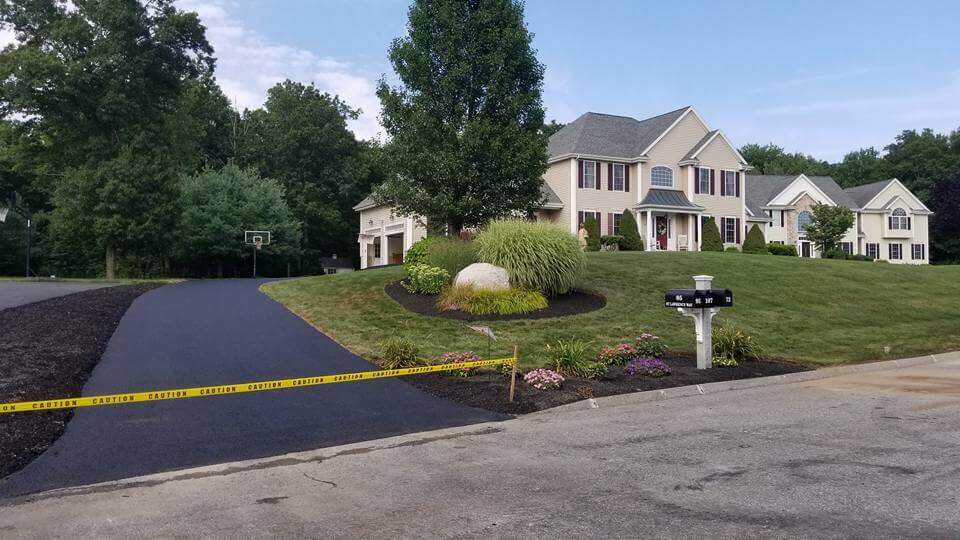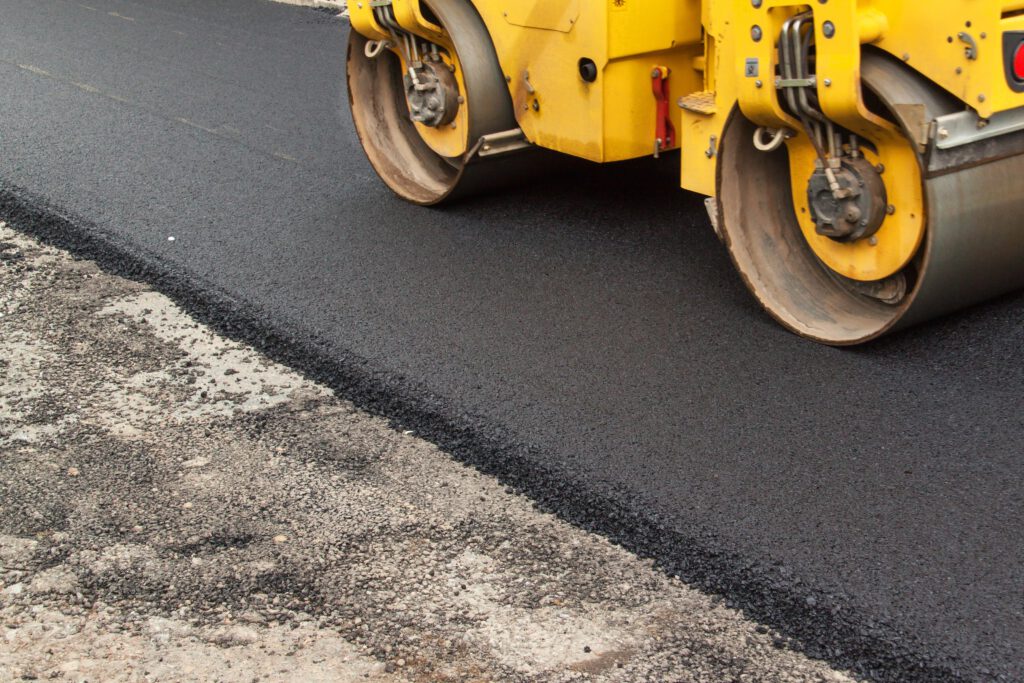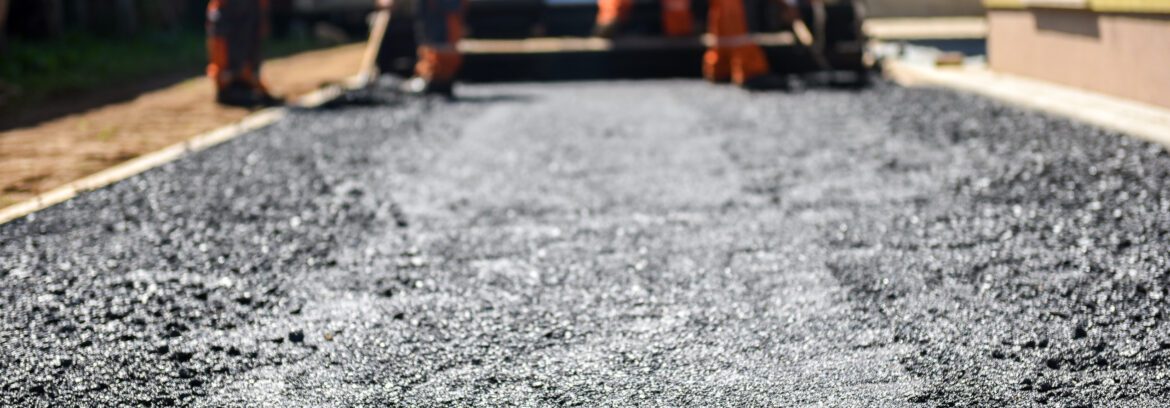Asphalt has become the preferred choice for paving over the past few years, especially for driveways. Your driveway could be cracked and crumbling around the edges, or you may not have a driveway at all, and asphalt is the material to help you get the best looking driveway in the neighborhood all while staying on budget.
What Exactly is Asphalt?
The asphalt used to make driveways is also known as hot mix or hot mix asphalt. This is what you’ll typically see road crews using on roads. It’s called this because it’s a mix of sand, stone, and asphalt. Asphalt itself is just a tar-like petroleum substance that glues the sand and stone together to create the concrete type material that your driveway will be made of.
To create the driveway, the asphalt needs to be heated to over 300 degrees fahrenheit in order to liquefy it. The material also needs to be placed quickly because it solidifies very quickly. This makes installing it very difficult, so it should always be done by a professional.

Pros of Using Asphalt
There’s a lot of pros of using asphalt for your residential driveway. These pros can help you in the long run, so it’s good to keep them in mind when making your decision.
- Less Expensive. Asphalt is less expensive than concrete and it is cheaper to install it. This is because the demand for concrete has increased, and there’s more steps to take when installing the material.
- Flexibility. Asphalt is more flexible and less prone to cracking than concrete. Once placed, concrete must remain firm or it will crack. Asphalt, on the other hand, due to its flexibility can move a bit before starting to crack.
- DIY Fixes. Eventually, you’ll need to resurface your asphalt driveway. This is just due to time and use, but you’re in luck because you can fix it yourself with some driveway sealant. Unfortunately, concrete is not the same way and a professional will need to resurface it for you.
- Better in Winter. Rock salt and ice melt are common for houses that deal with harsh winter weather. An asphalt driveway is less prone to damage from these materials, whereas it can easily damage your concrete driveway.
Cons of Using Asphalt
There’s lots of pros to having an asphalt driveway, but there’s also a few cons you should be aware of before making your decision.
- Plants. This isn’t very common, but it is still important to be aware of it. Some plants are able to force their way through your asphalt driveway, cracking it in the process. Usually, sturdier plants are able to do this, such as bamboo.
- Lower Resale Value. Concrete is more expensive to install and maintain, so it has a higher resale value compared to asphalt.
- Uneven Edges. Unless you’re installing a bit of concrete around the edges to hold the hot mix together, then you are likely to have some uneven edges after installation.

Reusable Material
There’s a lot of products that we recycle on a daily basis, such as plastic bottles, aluminum cans, and all kinds of paper products. Surprisingly, none of these are the most recycled materials in the nation. That title goes to asphalt.
Each year, roughly about 81 million tons of asphalt is reused. This recycled material can be used on new roads, roadbeds, shoulders, and driveways. Using this instead of new asphalt can actually make your driveway stronger, more durable, and safer.
Conclusion
Asphalt is a great material all around, and the best option for your new driveway. Not only will it save you money, but using recycled asphalt will actually make your driveway last longer. It’s the perfect choice to give you a great looking driveway while staying on budget.
Looking to have a new asphalt driveway installed? J Perry Paving is here to help you get the driveway of your dreams while staying within your budget.

